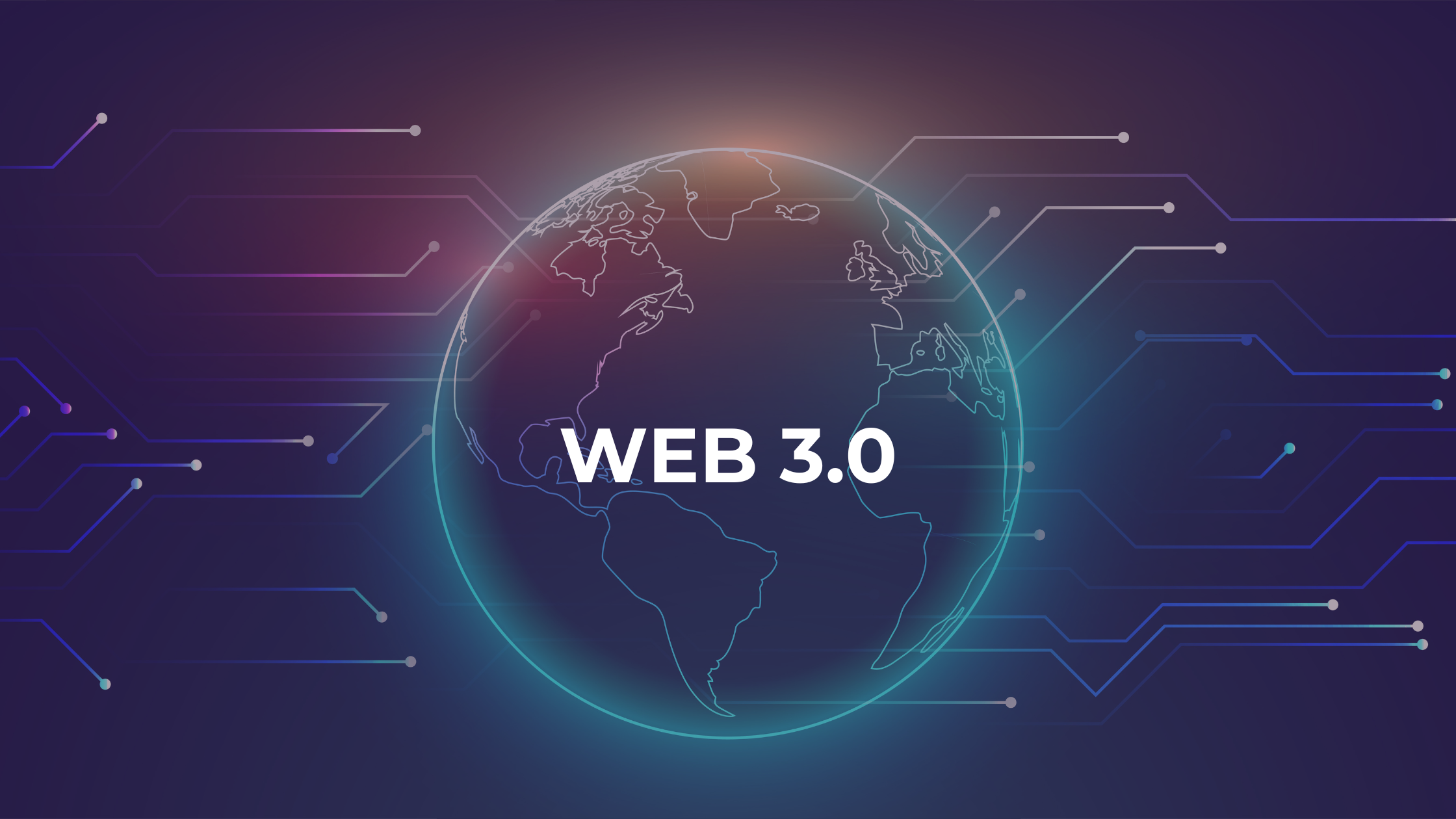Web 3.0: Owning Your Data, Owning the Future
 The Writer's Nook
The Writer's Nook
Imagine a world where websites know what you want before you ask, where data belongs to you and not giant corporations, and where the internet feels less like a crowded marketplace and more like a friendly neighborhood. That's the dream of Web 3.0, the next evolution of the web we all know and (sometimes) love.
But if you're picturing flying cars and talking robots, hold your horses. Web 3.0 isn't about flashy gadgets, it's about a fundamental shift in how the internet works. Right now, the web is like a shopping mall owned by a few big companies like Google, Facebook, Amazon. They control the data, they decide what we see, and they sell our attention to the highest bidder. Web 3.0 wants to tear down those walls and build a decentralized, user-powered internet.
So, what does that actually mean for websites? Let see how Web 3.0 will change the way we build, interact with, and experience websites.
Decentralization: Power to the People (and their Data)
Gone are the days of tech giants ruling websites, but by the people who use them. That's decentralization in a nutshell. Web 3.0 uses technologies like blockchain to create websites that run on a network of computers, instead of relying on a single server. This means no more single points of failure, no more censorship, and no more worries about your data being harvested by big tech.
AI and Machine Learning: Your Personal Web Assistant
Artificial intelligence (AI) and machine learning are already transforming our lives, and Web 3.0 takes it to the next level. Imagine your personal AI assistant curating your newsfeed, recommending movies you'll actually enjoy, and even writing emails for you. These AI companions will learn your preferences and habits, making the web a more personalized and efficient experience.
Semantic Web: Understanding Your Thoughts, Not Just Your Clicks
Right now, websites only understand keywords. Say you search for "pizza," you get bombarded with greasy pepperoni pies. Ever feel like the internet reads your mind? Well, in Web 3.0, it might actually be true (sort of). Semantic Web technologies aim to make computers understand the meaning behind information, not just the keywords. This means websites will be able to anticipate your needs and deliver content that's actually relevant to you. Imagine searching for "healthy recipes" and getting results tailored to your dietary restrictions, allergies, and even your favorite cooking style. No more sifting through pages of irrelevant junk!
The Rise of the Metaverse: Stepping into the Virtual World
Get ready to ditch your screens and step into the metaverse, a virtual world where we can work, play, and socialize. Think of it as a 3D version of the internet, where you can be whoever you want to be and interact with others in real-time, even if you're miles apart. Imagine attending concerts with friends across the globe, learning new skills in immersive virtual classrooms, or even owning a piece of digital real estate. The possibilities are endless!
Ownership and the Creator Economy
Web 3.0 empowers creators by giving them ownership of their content and work. Imagine artists selling their paintings directly to fans on a decentralized marketplace, musicians earning royalties every time their song is streamed, or writers publishing their books on a blockchain platform and getting paid instantly. This shift in ownership could revolutionize the creator economy, giving artists and content creators a fairer share of the pie.
NFTs (Non-Fungible Tokens): Owning the Digital
NFTs are one of the hottest trends in Web 3.0, and for good reason. They allow you to own and trade unique digital assets, from artwork and music to virtual land and in-game items. Imagine owning a one-of-a-kind digital painting by your favorite artist or a rare item from your favorite game. That's the power of NFTs!
NFTs are stored on blockchains, which are like secure, distributed ledgers that track ownership and prevent counterfeiting. This makes them a valuable tool for creators who want to control their work and monetize it in new ways. For collectors, NFTs offer a unique way to invest in and support artists they love.
The Social Media Revolution: Beyond Likes and Shares
Web 3.0 promises to reshape the way we interact on social media. Imagine platforms where users own their data and content, and where communities are governed by the people who use them, not by powerful corporations. This could lead to more democratic and engaging online experiences, with less censorship and manipulation.
Decentralized social media platforms are already emerging, powered by blockchain technology. These platforms give users more control over their privacy and security, and they offer new ways to monetize content and build communities.
E-commerce Reimagined: A More Open and Secure Marketplace
Web 3.0 could also transform the way we shop online. Imagine a marketplace where buyers and sellers interact directly, without the need for intermediaries like Amazon or eBay. This could lead to lower prices, fairer competition, and a more secure shopping experience.
Decentralized marketplaces are already being developed, using blockchain technology to create trust and transparency between buyers and sellers. These platforms could revolutionize the way we buy and sell everything from groceries to cars.
These are just a few examples of the potential impact of Web 3.0. As the technology matures, we can expect to see even more innovative applications emerge. It's an exciting time to be online, and it's clear that Web 3.0 has the potential to change the internet for the better.
But wait, there are challenges...
Web 3.0 is still in its early stages, and there are hurdles to overcome. Scalability, security, and user adoption are just a few of the issues that need to be addressed. Additionally, the shift towards decentralization raises questions about governance, regulation, and the potential for misuse.
So, what does it all mean for us?
Web 3.0 has the potential to be a game-changer, but it's important to approach it with cautious optimism. It's not a magic bullet that will solve all our online problems, but it offers exciting possibilities for a more open, secure, and user-centric internet. As we move forward, it's important to be informed, engaged, and critical of the technologies shaping our online future.
Remember, the future of the web is in our hands. Let's make it a future that works for everyone.
Subscribe to my newsletter
Read articles from The Writer's Nook directly inside your inbox. Subscribe to the newsletter, and don't miss out.
Written by

The Writer's Nook
The Writer's Nook
Welcome to "The Writer's Nook"! I'm delighted to have you here. I'm Hasna Mariyam VP, the writer, creator, and curator of this blog. With a passion for content writing, digital marketing, and technology, I am dedicated to sharing my knowledge, insights, and experiences in these dynamic fields. In our rapidly evolving digital era, technology and digital marketing have become indispensable aspects of both our personal and professional lives. Through "The Writer's Nook," I aspire to empower individuals like you to navigate the digital landscape with confidence, adapt to emerging technologies, and leverage digital marketing tactics to achieve your goals. Thank you for joining me on this thrilling journey.